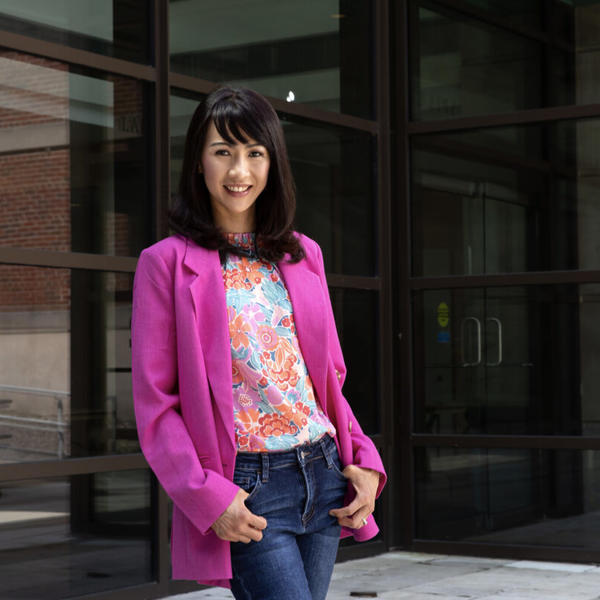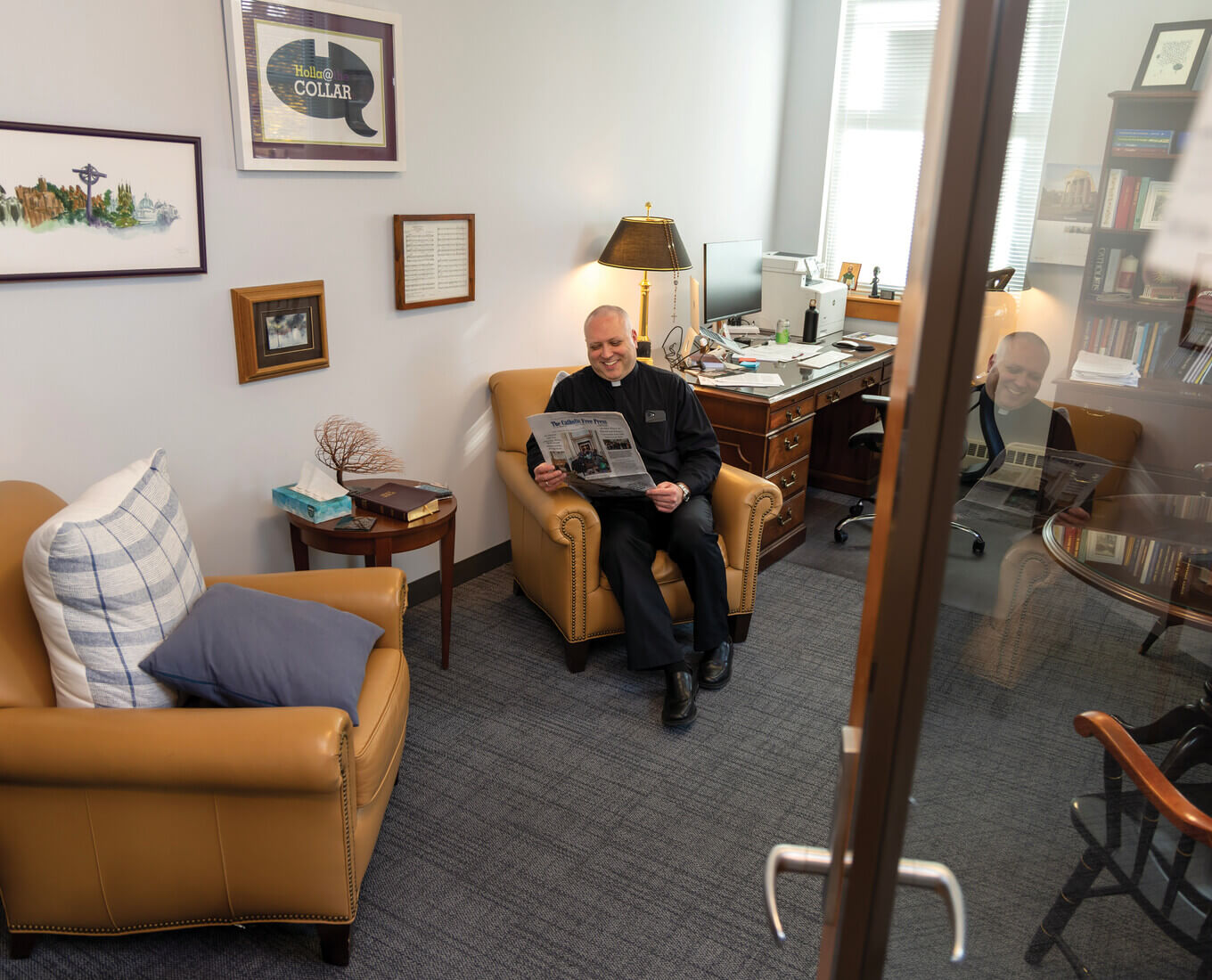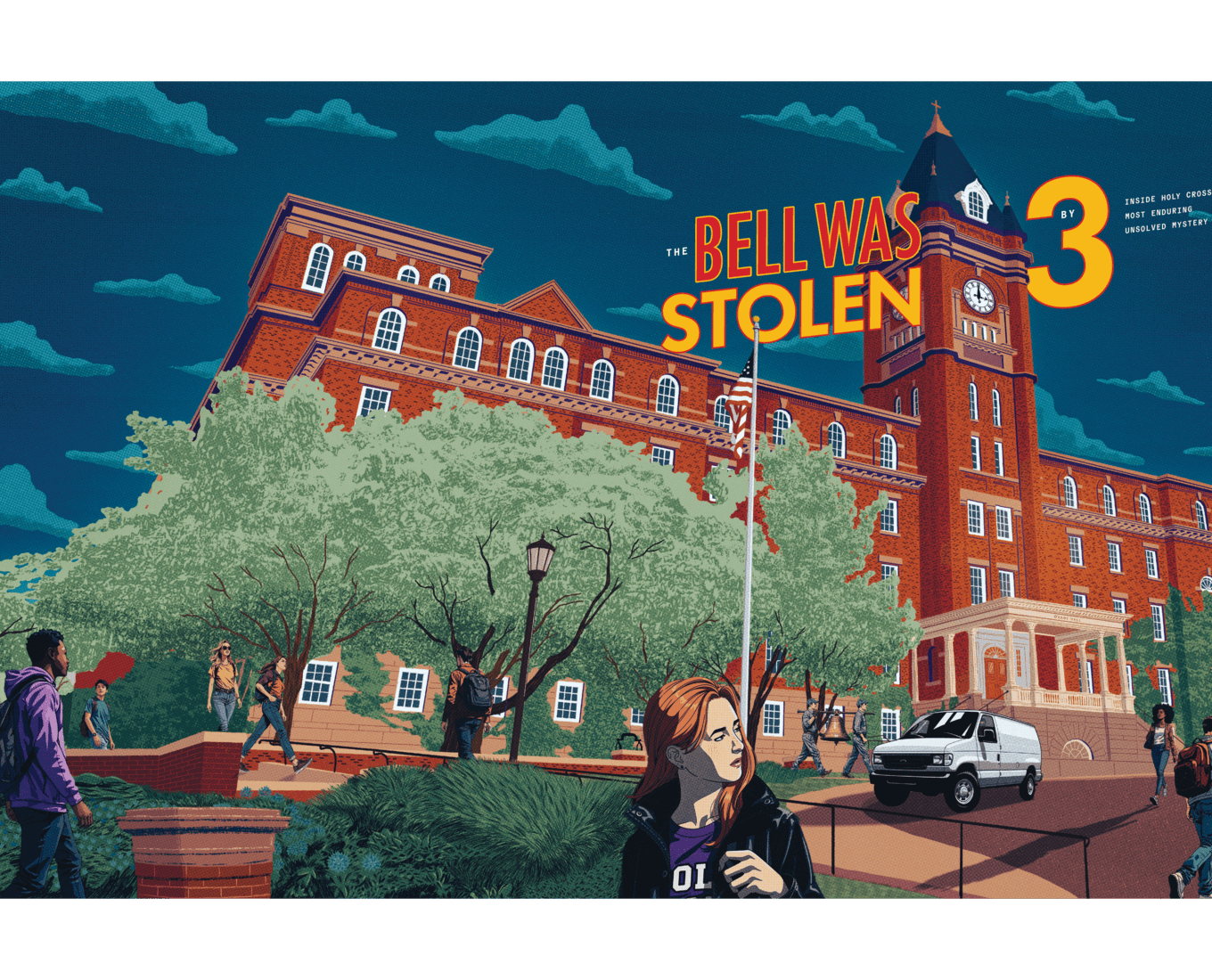The majority of the global population is religious, yet psychologists have little understanding of how religious beliefs impact the way children think, says Florencia Anggoro, Holy Cross associate professor of psychology.
"The field of child development has done well studying how children’s minds work, but for the most part, it has not looked deeply into influences of culture and religion," Anggoro says. Any existing research on the topic, she explains, tends to focus on populations that are Western, educated, industrialized, rich and democratic.
"If we understand how people think about religion and form their religious identity, it can help navigate intergroup relations, religious tensions and conflicts everywhere in the world," Anggoro says. "Everyone is shaped by many cultural factors, and religion is a big one. We can't ignore it if we want to understand ourselves."
So, how do children acquire religious beliefs? How do they process other religions around them? How do they grapple with scientific concepts that seemingly conflict with religious teachings?
As part of a pioneering network of research teams positioned across the globe, Anggoro is more than three years into a five-year research project exploring these and other key questions in Indonesia, where she grew up. Funded in 2020 by a Templeton Foundation grant, the Developing Belief Network, led through Boston University and the University of California, Riverside, includes 10 inaugural research teams across 16 countries.
Anggoro was also awarded a separate Templeton subgrant in 2020, through the University of Texas at Austin, to conduct a three-year study on how the beliefs of Indonesian children, adolescents and adults interact with science learning as one of 14 research teams in the global Culture of Schooling network.
These worldwide networks of scholars collaborate closely to develop questions that allow for cross-cultural comparisons, Anggoro says. Research teams in the Developing Belief Network interview children of various ages over time and also observe them in conversation with parents or caregivers.
"We see how a child gets input from a parent about how to reason and make sense of the world," Anggoro says. "How do they grapple with big questions like, 'What happens when we die? What causes natural disasters like tornadoes and floods? Is it a higher power or is there a mechanistic explanation?'
"Religious cognition is complex, but we have to start somewhere," she continues. "These networks have allowed me to ask questions I have been wondering about since I was a child."
A fusion of personal and professional
Anggoro was raised Catholic in Indonesia’s densely populated capital city of Jakarta, which is predominantly Muslim, but also home to significant religious diversity.
"The city’s main cathedral and mosque were side-by-side, across from my school," recalls Anggoro, who attended Catholic school alongside friends of various religions. "I watched Muslim friends fast during Ramadhan while attending Catholic religion classes. I was always curious how that affected a child, to be confronted with wildly different belief systems."
In Indonesia, religious affiliation is mandatory, Anggoro says: "You need to select one of six official religious affiliations to even have a national ID card. Indonesians pride themselves on religious diversity and acceptance. As children, we were taught tolerance, but I wondered how much of that was internalized. We still saw conflict, so it was sometimes hard to reconcile."
Anggoro and her collaborator, Benjamin Jee, associate professor of psychology at Worcester State University, are conducting their groundbreaking research in Jakarta, as well as on the island of Bali, which is unique because it is the only province in Indonesia where Hinduism is the predominant religion.
"We ask children questions like, 'Do you think people are born one particular religion? Can scientists look at your bones or blood and know your religion?'" Anggoro says. "A child’s answers may reveal whether they believe religion is part of the one’s essence. If you are a child living in Bali, where the vast majority of people are Hindu and religion is integrated into everyday life, are you more likely to think you are born one religion?"
Researchers are also curious to understand how children distinguish religious supernatural beings from secular fictional figures, like the tooth fairy. A researcher might ask, 'Can Jesus walk through walls? What about the tooth fairy?' If a child believes Jesus can walk through a wall, but the tooth fairy can't, that shows the religious beings may follow a different set of laws than other entities, Anggoro explains.
She has long studied science learning in children, including within the Worcester Public Schools, and says this new research could give educators a deeper understanding of learners.
For example, if a child holds the religious belief that Jesus can walk through walls, how does that interact with learning the laws of physics? Or, if a child believes flooding is caused by a higher power, how do they process learning about climate change? Essentially, how do children suspend belief, or not, in order to acquire new information?
"It's thrilling to bring so much of my background, intuitions and childhood questions into this project. A big criterion for this research award was to really know the field site," says Anggoro, who notes this avoids "parachute research," in which scholars gather data in places where they lack cultural awareness in favor of research centered around a deep understanding and development of long-term working relationships within the community.
Her journey to Holy Cross
This fall, Anggoro will assume the title of professor at the College and says it feels like the culmination of a long path that began at large research universities and ultimately led to a love of Holy Cross and liberal arts education.
"Coming from Indonesia, we only heard about research universities," she says. "I applied to college sight unseen after looking at hardcopy pamphlets I requested through the mail."
She received a B.A. in psychology from the University of Wisconsin-Madison and an M.A. and Ph.D. in cognitive psychology from Northwestern University. While Anggoro says she had amazing research experiences and mentors at those institutions, she ultimately felt something was missing in these settings when choosing where to plant roots professionally.
"When I interviewed at Holy Cross, I came home and was rather speechless because I felt like it was such an amazing fit. I could be me and let my passion and questions guide my work," says Anggoro, who has taught at the College since 2010. "I love the balance at Holy Cross — the teaching, research, service and individual connections. People here are called by meaningful values and their actions are guided by those values. I see that in the students, with their generosity of spirit. It feels very fulfilling to have arrived here after a long journey."


